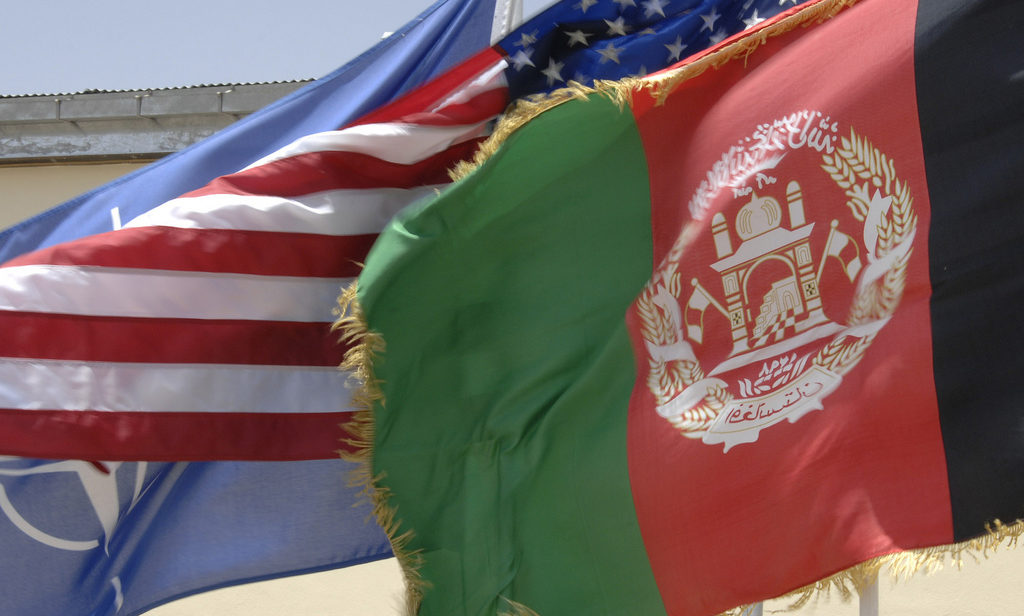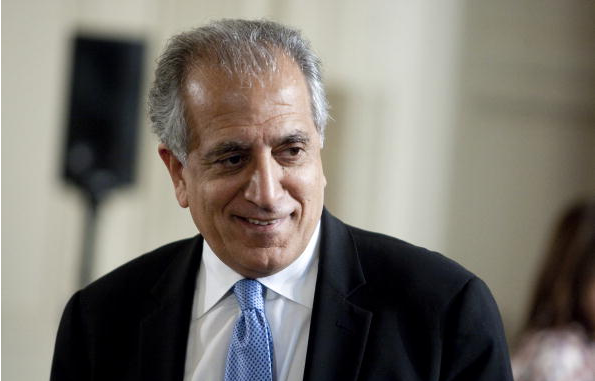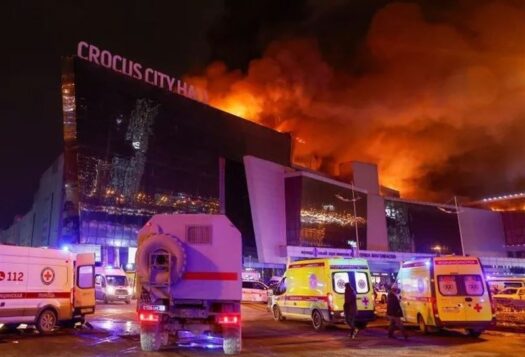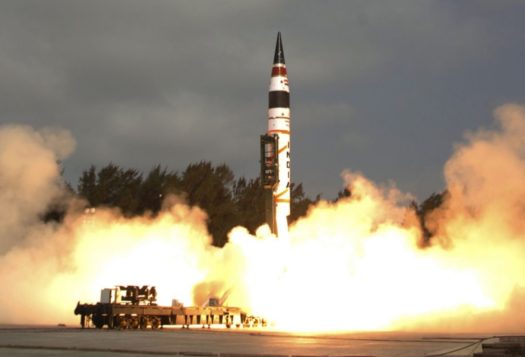
The fifth round of talks between the United States and the Taliban ended in Doha last week after 16 days of engagement. As a result of the United States’ decades-long struggle in Afghanistan against the Taliban, President Donald Trump had announced, in December last year, his intention to withdraw from the war-torn country. He installed a special representative for reconciliation, Zalmay Khalilzad, to convince the Taliban to end the conflict and engage in dialogue with the Afghan government. However, the insurgent group’s key demand for the initiation of such a dialogue remains the withdrawal of foreign troops from Afghanistan. The latest round of talks aimed to achieve a final agreement on foreign troop withdrawal, counterterrorism assurances, intra-Afghan dialogue, and cessation of fighting. Although the Taliban has reportedly accepted the United States’ demand of dismissing Al-Qaeda and Daesh from Afghanistan, Washington’s inability to announce a timeline for troop withdrawal takes matters back to square one. Additionally, the intensification of fighting between the insurgent group and government forces backed by the U.S.-led International Security Assistance Force (ISAF) coupled with growing cleavages between the United States and the National Unity Government of Afghanistan (NUG) depict a worsening picture of the Afghan peace process.
Cessation of fighting between the warring parties remains a prerequisite to a successful peace process. However, while the longest round of United States-Taliban talks was underway, the insurgent group and Afghan government forces fought some of the fiercest battles across the country. During these ongoing battles, the Taliban not only inflicted heavy casualties on government forces, but also kept some personnel hostage. This was done to demonstrate the Taliban’s upper hand in the ongoing war and more importantly, such battles are only expected to intensify around the country with the arrival of the spring offensive. As for the United States, on the one hand, it insists on a ceasefire but on the other hand, it pursues a strategy of intensifying fighting on the ground to pressurize the insurgents. This approach has floundered as the Taliban has dominated the war since the announcement of President Trump’s Afghanistan-centric South Asia strategy, but Washington is yet to change it.
Smooth relations between Kabul and Washington are another important factor to attain peace. After all, they are on the same side and the more they harmonize their policies, the better position they would be in to negotiate. However, setbacks on the ground to the Afghan National Security and Defense Forces (ANSDF) coupled with the prolongation of the U.S.-Taliban talks and the continuous absence of NUG representation in the negotiations have frustrated authorities in Kabul. Resultantly, the NUG, led by President Ashraf Ghani and Chief Executive Abdullah Abdullah, has recently been outspoken regarding its disapproval of the United States’s direct talks with the Taliban, which they believe ought to be Afghan-owned and Afghan-led. The discord between the NUG and the White House peaked and became palpable during a recent visit of President Ghani’s National Security Advisor (NSA) to Washington. In a rare occurrence, the Afghan NSA Hamidullah Mohib was summoned by the U.S. government after he criticized special envoy Zalmay Khalilzad and Mohib has reportedly been shunned by U.S. officials in Washington and Kabul,
However, the NUG has also played its part in making the peace process irrelevant. Kabul’s continuous refusal to establish an interim government has negatively affected the process. The establishment of an interim government comprising all the local stakeholders including the Taliban would have made the peace process more relevant and logical. This inability to install an interim government has also added to the difficulties in finalizing an inclusive negotiating team, even though Kabul is eager for one. An interim government could be effective in undertaking crucial amendments to the current constitution of Afghanistan in order to make it acceptable for all stakeholders. How this lack of interest on the part of the NUG in the peace process affects Ghani and Abdullah’s authority to make any new government is an important question to ponder upon. However, it is more pressing to ask–does this attitude serve the vested interests of a few, or is it geared toward the greater interest of attaining peace?

Moreover, the fact that the Pentagon and the Europeans are not in favor of troop withdrawal is another major hurdle to the peace process. While the fifth round of talks was underway, General Joseph Votel, Commander of the U.S. Central Command, said that conditions in Afghanistan are not conducive to the complete withdrawal of foreign troops. He also stated that the Pentagon had not received any order for troop withdrawal. Meanwhile, NATO Secretary General Jens Stoltenberg also reiterated that the achievements of the past one and half decades following the collapse of the Taliban regime in Afghanistan should not be undermined by the peace talks. Recently, the United States’ vital European partner and the second largest contributor to ISAF, Germany, has also extended its military mission in Afghanistan for another year. There seem to be disagreements between the White House and ISAF on their Afghan exit strategy which has been more perceivable recently. Until the removal of these disagreements’, an announcement of a timeline for troop withdrawal would continue to stumble the peace process.
Khalilzad and Mullah Abdul Ghani Baradar, Taliban’s deputy leader and head of the group’s Qatar office, seem to be quite optimistic regarding the peace process. After the latest round of talks, Khalilzad stated that when the draft agreement about a withdrawal timeline and effective counterterrorism measures is finalized, the Taliban and other Afghans, including the government, would begin intra-Afghan negotiations on a political settlement and comprehensive ceasefire. Meanwhile, Baradar stressed that significant progress was made in the Qatar talks and he hopes that more developments are made in the future. However, disagreements flared up between the two sides after Taliban spokesmanZabiullah Mujahid rejected a report on human rights violations released by the U.S. State Department, saying that “the truth of the matter is that the United States is an occupier country directly involved in crimes against humanity.” The State Department and the Taliban, despite all odds, have been successful in maintaining continuous rounds of back-to-back talks where time and again they have endorsed each other. This recent counter critique might harm the Taliban’s relationship with the State Department though, and potentially affect the peace process.
By and large, due to incongruities in the overall strategy and lack of coordination between the State Department and the ISAF and between State Department and the NUG, President Trump’s special envoy is unable to declare a timeline for troop withdrawal. In addition, fighting between the Taliban and ANSDF-ISAF is peaking and a ceasefire appears far-fetched. Under these conditions, it would be idealistic to assume that a peace agreement can be reached soon or that bitter enemies (Taliban and Afghan forces) will suddenly reconcile and begin to operate in the same army. When the talks began, there were no rifts between the NUG and the State Department, and President Ghani had outlined an inclusive negotiating team on Khalilzad’s directions. Currently, Kabul’s refusal to recognize the talks between the United States and Taliban reflects that the state of the peace process after five rounds of negotiations is even further behind than where it all began.
***
Image 1: U.S. Air Force photo by Tech Sgt. Samara Scott via Flickr


